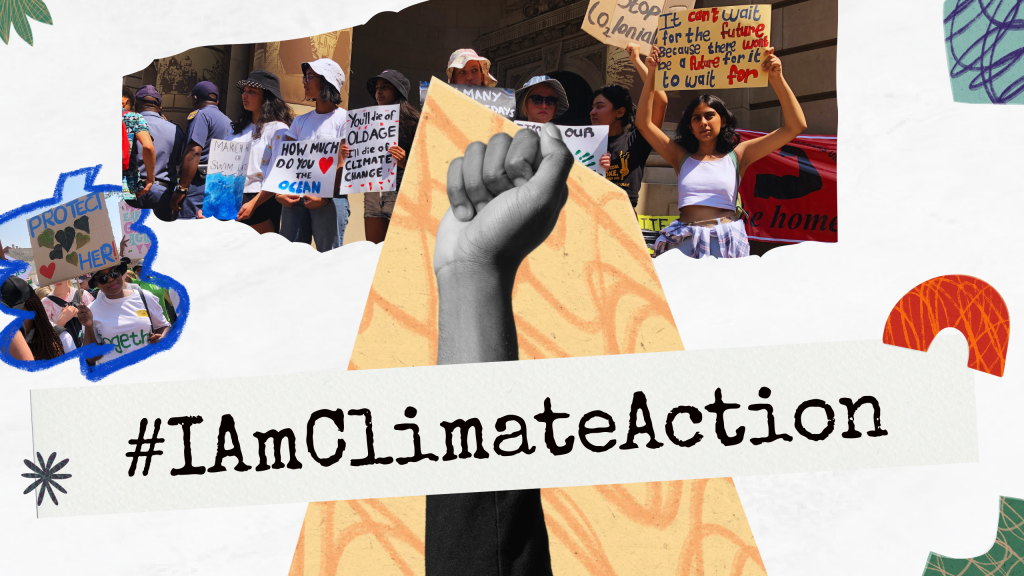The right to access safe, sufficient, and reliable water will continue to be threatened unless the government prioritises investment in infrastructure, implements climate friendly policies, and tackle corruption and the mismanagement of public funds, Amnesty International South Africa said today.
“South Africa’s water scarcity continues to be exacerbated by a lack of investment in infrastructure or technology, called economic water scarcity, and the climate crisis, yet the government is doing very little to mitigate the consequences this will have for everyone living in the country,” Amnesty International South Africa Executive Director Shenilla Mohamed said.
“Access to water is a human right and not a privilege. The government must ensure that resources, such as water, in the country are protected. It is also obliged to guarantee that sufficient resources are allocated to ensure that all human rights are upheld, and this includes the right to water,” she said.
There are three intersecting areas threatening the country’s water security:
- Water scarcity
- Lack of water management, with a focus on systemic corruption in the sector and economic water scarcity
- Climate change and variability
Water Scarcity
It is predicted that South Africa will face the biggest water crisis the country has experienced in the next decade, and according to the 2018 National Water and Sanitation Master Plan, there will be a water supply deficit of approximately 17% by 2030.
Further, there is a capital investment funding gap of approximately R265 billion over the next 10 years to meet the national objectives of providing water and sanitation to the entire population. This within a context in which over three million people already do not have access to basic water supply services in South Africa.
Lack of water management
Thirty-seven percent of South Africa’s clean, potable water is being lost and wasted through poor infrastructure, such as leaking pipes, and is particularly prevalent in drought-prone areas like Nelson Mandela Bay where it is estimated that water leaks account for 29% of the metro’s water losses.
“The mismanagement of public funds and corruption in South Africa’s water sector is a large contributing factor to the lack of direct investment in water to satisfy demand and access to water,” Shenilla Mohamed said.
“Economic water scarcity is caused by a lack of investment in infrastructure or technology to draw water from rivers, aquifers, or other water sources. Furthermore, the apartheid regime’s segregation laws resulted in many communities not having access to basic water supply and sanitation services. Although South Africa is 28 years into democracy, inequalities in water infrastructure, due to a lack of investment by the current government predominantly in rural areas, have amounted to low water service reliability,” she said.
Climate Change
Climate change will impact access to water in South Africa in three key ways: firstly, temperatures will increase, secondly, rainfall will decrease and/or become more erratic, and thirdly an increase in extreme weather events, such as droughts or floods. A recent report indicates that the effects of climate change will mean South Africa may experience a reduction of 10% in average rainfall, thereby reducing surface water runoff up to 50-75% by 2025.
Whilst weather scientists cannot attribute individual weather events to climate change, they have said with certainty that all forms of extreme weather events have increased in frequency
Amnesty International South Africa has looked at the recent KwaZulu-Natal floods and the water crisis in Nelson Mandela Bay in the Eastern Cape as two case studies of extreme weather events that have affected access to safe, sufficient and reliable water.
In Kwa-Zulu- Natal heavy rainfall caused severe flooding that saw over 400 people lose their lives and over 8,000 houses were destroyed. Nelson Mandela Bay’s prolonged drought, caused by a decrease in rainfall is threatening access to safe, sufficient, and reliable water for thousands of residents.
Both extreme weather events are also an example of how the lack of accountability and climate-related action from the government can aggravate the impact of climate change.
In KwaZulu-Natal, the state of eThekwini’s water infrastructure was already in a precarious position before the April floods. According to experts interviewed by Amnesty International South Africa, the regular maintenance of water infrastructure might have mitigated some of the damage that occurred.
In Nelson Mandela Bay, the municipality fast tracked the city’s day zero, by failing to ensure that water is not lost to thousands of leaks in the metro. Despite the city facing a water crisis, Nelson Mandela Bay loses about 29% of its water supply to leaks. The metro has been facing a drought since 2016, so there is no excuse for the lack of maintenance to fix the water leaks.
“All these factors combined threaten the right to access safe, sufficient and reliable water for millions of people,” Shenilla Mohamed said.
“Further, with South Africa being a water-scarce country, it needs government policies that prioritise water security to ensure this finite resource is being stored and utilised efficiently, particularly as the climate crisis intensifies. We must demand that the government prioritises water security as we face a water crisis and a sector crippled by corruption,” she added.
Background
Amnesty International South Africa launched its climate change campaign, #IAmClimateAction on 5 July 2022, which aims to increase climate literacy among young people to ensure every person in South Africa has the knowledge to hold the relevant government players accountable to their commitments to uphold the right to water in the face of the climate crisis.
Learn more about Amnesty International South Africa’s free climate change course here.
For more information or to request an interview, please contact:
Genevieve Quintal, Media and Communications Officer, Amnesty International South Africa: +27 (0)64 890 9224; genevieve.quintal@amnesty.org.za
Public Document
****************************************
Amnesty International South Africa office, 97 Oxford Road, Saxonwold, Johannesburg, 2196
press@amnesty.org


